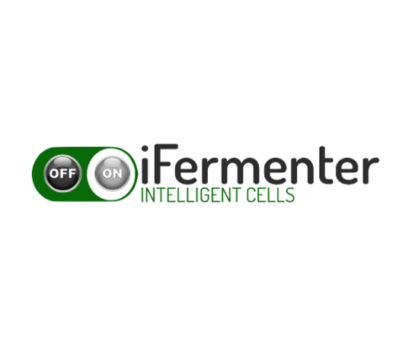Conversion of Forestry Sugar Residual Streams to Antimicrobial Proteins by Intelligent Fermentation
Plant dry matter, so-called lignocellulosic biomass, is the largest renewable biomass feedstock on Earth. Europe has over 14 million tons of sugar residuals from biorefineries, which could be converted to profitable products and contribute to a sustainable bioeconomy. Unfortunately, existing biorefineries struggle with technical issues and low profitability due to the lack of adequate fermentation processes. Therefore, these sugars are either incinerated to generate energy or at best converted to ethanol (€0.6 /kg) but not to higher value chemicals.
Current concepts that aim to establish fermentation processes to convert residual sugar streams to high value products face challenges including inefficient sugar utilization by microorganisms and inhibitors in the residual streams, leading to low productivity and yields.
Our project aims to recover high value compounds from sugar residuals, and to turn fermentation processes converting these residual to antimicrobials cost effective. We will recover the high value sugar galactose (€40-200 /kg) from residual streams as part of their treatment process. By genome editing technique, we will design cell factories that consume the remaining residuals and produce nisin (€50-150 /kg), an industrially important commercial food/feed preservative. Additionally, we will develop an affordable, online feedback add-on system that will allow to intelligently change residual mixture during fermentation of these cell factories to optimize production online during the process.
In a 150 L industrial bioreactor, we will demonstrate that our add-on invention iFermenter
- increases the yields of nisin by over 2 fold
- increases the nisin production by over 50% compared to what is possible today
and reduce at least 20% in CO2 footprint with this process compared to existing solutions.
Thus, iFermenter will render production of high value products with residual sugar stream highly efficient and cost-effective contributing to circular economy.
ACTIVITIES of the Bio Base Europe Pilot Plant
- BBEPP will develop a Downstream Processing method for the produced peptides.
- BBEPP will scale-up the sophisticated iFermenter process to 150 L scale, as such demonstrating the iFermenter platform technology in an industrial environment.
PARTNERS
- Norwegian University of Science and Technology, NO: Coordinating and control engineering.
- Norwegian University of Life Sciences, NO: Microbiology,
- Ulm University, DE: Synthetic biology and metabolic engineering,
- University of Saarland, DE: Synthetic biology and metabolic engineering,
- MyBiotech, DE: Sugar metabolic engineering,
- Borregaard, NO: Sugar utilization,
- Technical University Wien, AT: Process engineering,
- University of Santiago de Compostella, ES: Environmental engineering,
- Galactic, BE: Antimicrobials developer & manufacturer,
- INFORS HT, CH: Fermentation technology,
- Bio Base Europe Pilot Plant, BE: Process upscaling and demonstration.
SUPPORTED by:
The iFermenter project has received funding from the Bio-Based Industries Joint Undertaking (JU) under the European Union’s Horizon 2020 research and innovation programme under grant agreement No 790507.



 webdesign
webdesign